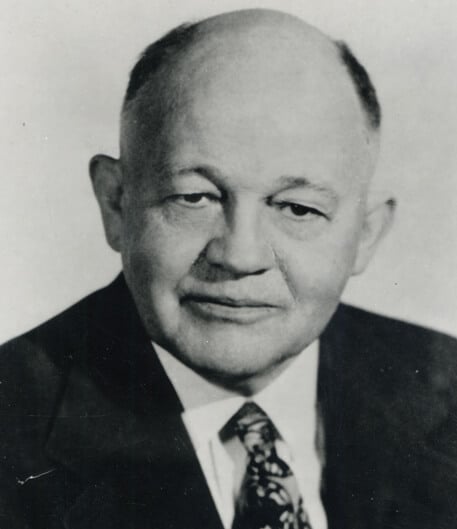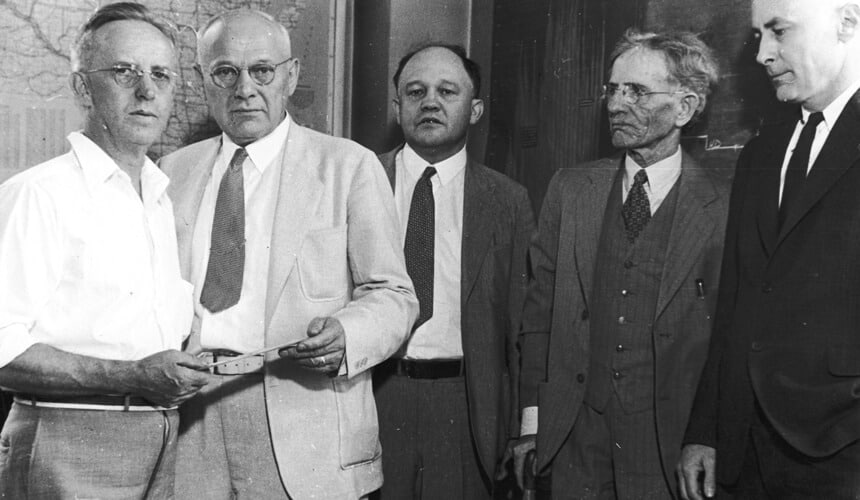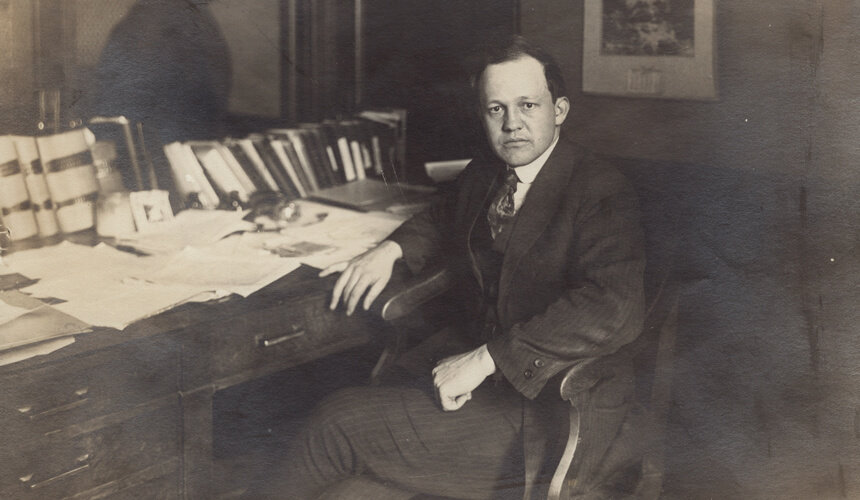Edwin Witte
Economist for the People
Edwin Witte BA1909 PhD1927 — a lifelong Wisconsin resident and UW-educated economist — took the Wisconsin Idea to the nation’s capital in the 1930s, when he helped to create the Social Security program.
Phi Beta Kappa as an undergraduate, Witte followed the advice of renowned professor Frederick Jackson Turner BA1884, MA1888 and remained in Madison for graduate study. Working with economics professor John Commons, who regularly advised Wisconsin’s government, Witte began a decades-long career in public service.

Image courtesy of the UW Archives, #S07419.
Although Witte first took doctoral exams in 1916, career commitments delayed his dissertation. He was personal secretary to U.S. Representative John Nelson, regulated labor and safety as executive secretary of the Wisconsin Industrial Commission, and designed Wisconsin’s first unemployment compensation program.
From 1921 to 1933, Witte was the state’s expert in drafting legislation as chief of Wisconsin’s Legislative Research Library. After resuming study and earning his PhD, he accepted a professorship at the UW in 1933.
When President Franklin Roosevelt sought to alleviate effects of the Great Depression, he turned to Arthur Altmeyer BA1914, MA1920, PhD1931, second assistant secretary of labor. Altmeyer, in turn, called upon Witte to create an economic “safety net.”
Witte was named executive director of the Committee for Economic Security — a post he would call “the most rewarding experience of my life.” Leading a brain trust of fewer than 100 staff and advisers, he and his team wrote a legislative plan in just six months. He was the first to testify about the bill before the House Ways and Means Committee.
Roosevelt signed Witte’s vision into law. The Social Security Act of 1935 was the first nationwide program to finance public health and provide economic security for the unemployed, the elderly, and children in need.
After the bill’s passage, Witte returned to the UW, where he chaired the economics department for 12 years. He died in May 1960, just before the Social Security Act’s 25th anniversary.
Data driven and proud of it, Witte explained how economics fulfilled the Wisconsin Idea: “All or most of the institutional economists have been pragmatists, studying facts, not for their own sake, but to solve problems and to make this a better world to live in.”
 18° F
18° F
